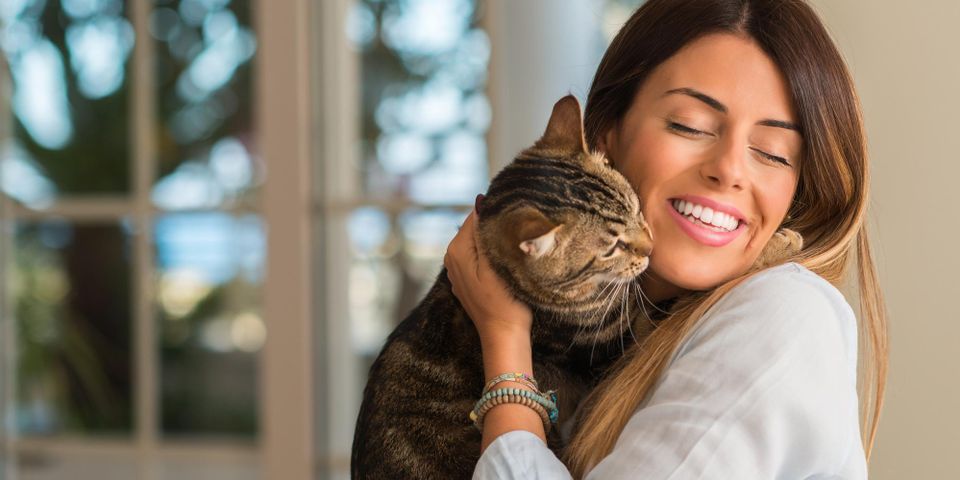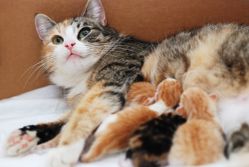
Everyone is familiar with the telltale rumble of a cat’s purr. It is the most frequently made vocalization among domestic cats, but pet owners and animal experts alike know relatively little about this sound. Although you’re unlikely to get a direct translation from veterinarians, the following guide explains everything you should know about purring and what your cat may be trying to tell you.
The Guide to Interpreting Your Cat’s Purr
Where Does Purring Come From?
Cats produce these iconic rumbles using their larynx and diaphragm. Scientists have noted that purrs occur in a consistent pattern between inhalations and exhalations, with a sound frequency between 25 and 150 Hertz. Frequencies in this range are thought to promote healing, leading to speculation that cats may purr in part for therapeutic reasons.
Why Do Cats Purr?
Most people only associate purring with happiness, but cats purr in a variety of situations. If your cat appears relaxed—for example, while lying in the sun or curling up in your lap—you can safely assume they’re in a good mood.
 Kittens begin purring days after birth, and they and their mother will exchange gentle rumbles as a form of bonding. If your cat has just given birth, you might even hear her kittens purring as they nurse. Even when they reach adulthood, cats will purr when they’re hungry or want something from you.
Kittens begin purring days after birth, and they and their mother will exchange gentle rumbles as a form of bonding. If your cat has just given birth, you might even hear her kittens purring as they nurse. Even when they reach adulthood, cats will purr when they’re hungry or want something from you.
This will likely sound a bit different from your kitty’s purrs of contentment and may include some soft cries or mews. If it’s close to mealtime or your pet seems intent on grabbing your attention, chances are, they’re looking for something.
While purring is a common response to positive situations, it can also occur when cats are hurt or afraid. The frequency of the sound serves to soothe and assist in the healing process. If your cat is purring while exhibiting unusual behavior, such as skittishness or limping, you may want to take them to the emergency vet. A veterinarian will pinpoint the source of the pain or anxiety and help bring your pet back to their happy, healthy self.
If you suspect your cat’s purrs are linked to pain or fear, bring them to Rolling Hills Veterinary Hospital for attentive emergency care. With two convenient locations in Columbia, MO, these veterinarians provide comprehensive medical services to pets throughout the community. Their state-of-the-art facilities are clean, comfortable, and fully equipped to handle all of your furry friend’s needs, from routine checkups to pet surgery. Visit their website for more information about their services. Call (573) 449-3791 to schedule an appointment at the Keene St. location or (573) 449-7387 for the Buttonwood Dr. clinic.
About the Business
(5 reviews)
Have a question? Ask the experts!
Send your question

